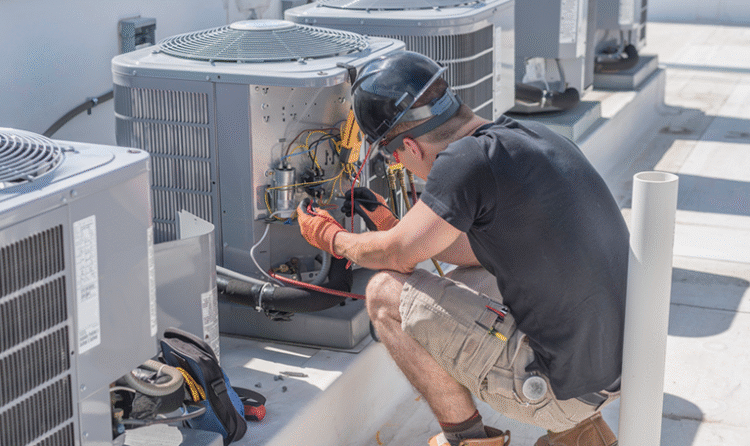Selling a roofing company can be a significant move, but knowing its true value is vital. Many factors influence the price of your business. The roofing industry has experienced consistent growth, and the demand for quality service remains high.
To effectively navigate the sale process or plan for the future, understanding how to value a roofing company is paramount. This guide will help you assess your business’s worth and determine what steps to take next.
Understanding the Role of EBITDA in Roofing Business Valuation
One of the most common methods used to determine the value of a roofing company is EBITDA (Earnings Before Interest, Taxes, Depreciation, and Amortization). This metric provides insight into your company’s profitability and operational efficiency. To calculate EBITDA, simply add back interest, taxes, depreciation, and amortization to your net income.
For buyers, EBITDA offers a clear picture of the cash flow available for future investment. In roofing businesses, having strong EBITDA indicates that the company is generating enough cash flow to cover its operational costs, with room left over for expansion or paying down debt.
Typically, this metric is used to estimate business value by applying a multiple. The multiple varies depending on the business’s size, growth potential, and market conditions.
The Value of EBITDA Multiples
When it comes to how to value a roofing company, EBITDA multiples are one of the most straightforward ways to estimate its worth. An EBITDA multiple is applied to your company’s EBITDA figure to generate an approximate valuation. In the roofing industry, multiples generally range from 4x to 7x, depending on several factors.
For example, if your roofing business has an EBITDA of $1,000,000 and the industry multiple is 5x, your business valuation would be $5,000,000. Keep in mind that multiple adjustments may occur based on factors such as market demand, industry trends, and your business’s financial performance.
Factors Influencing Roofing Business Valuation
Several elements impact the multiple applied to your EBITDA, which ultimately affects your company’s value.
- Revenue Trends
The consistency of your revenue plays a significant role. If your roofing business has demonstrated consistent growth over the years, buyers will see that as a positive sign of stability and future potential. A solid track record of increasing revenue can elevate your company’s valuation.
- Profit Margins
High profit margins show that your business operates efficiently. Roofing companies with strong margins often attract more buyers because they are seen as more financially sustainable in the long term. Improving your profit margins by controlling costs or offering high-margin services can increase your company’s appeal.
- Market Position and Brand Recognition
Your business’s position within the market is also crucial. A well-established brand with loyal customers can command a higher price. Additionally, if your company holds a strong market share in your region, it will make your business more attractive to potential buyers.
- Operational Efficiency
Operational efficiency is another key factor in determining the worth of your roofing company. If your business runs smoothly with minimal overhead, it will be more appealing to buyers. Efficient operations allow new owners to focus on growing the business instead of fixing inefficiencies.
Comprehensive Valuation Beyond EBITDA
EBITDA and its multiples are critical, but they are just one part of the equation when determining a roofing company’s value. You should also consider other key aspects of your business.
- Operations and Service Mix
The type of roofing services you offer matters. Some buyers may prefer companies that focus on residential retail roofing, while others may look for commercial or insurance restoration roofing companies. The service mix and type of roofing business you operate can influence its value.
- Management Team
A strong and capable management team adds significant value. A business with a dependable, experienced management team is easier to sell because the new owners can rely on the existing staff to continue running operations smoothly. Strong leadership can reduce the amount of transition time required after the sale.
Roofing Business Succession Planning and Strategic Growth
If you are thinking long-term about the future of your roofing company, strategic planning can not only improve the value but also ensure a smooth transition when it comes time to sell. Succession planning is an important part of preparing for the future, especially if you plan to pass the business on to family members or new owners.
- Diversifying Service Offerings
Expanding into complementary services, such as gutter installation or solar panel integration, can make your roofing company more attractive to buyers. Diversification helps stabilize revenue streams and reduces dependence on one type of business, which in turn can increase its value.
- Geographic Expansion
Expanding into new geographical areas opens up fresh customer bases and growth opportunities. Buyers are often attracted to companies that are already making strides in untapped markets. Geographic expansion can drive up a roofing company’s value by increasing its reach.
- Investing in Technology
Technology plays an important role in improving operational efficiency and customer satisfaction. By investing in new tools, such as customer relationship management (CRM) software or estimating technology, you can boost your roofing company’s value and marketability. Potential buyers will see these investments as an opportunity to improve efficiency, which can translate into higher profits.
How to Market Your Roofing Business for Sale
Once you have determined how to value a roofing company, the next step is marketing it to potential buyers. The best way to do this is by creating an effective business profile and leveraging industry-specific networks.
- Crafting a Business Profile
Your business profile should highlight the strengths of your company. This includes strong customer relationships, solid financial performance, and a proven track record. The better your business profile, the more likely you are to attract serious buyers.
- Targeted Marketing
A roofing company should be marketed specifically to buyers who have experience or interest in the industry. Working with an experienced business broker can help you reach the right audience. Brokers often have extensive networks and can tap into a pool of buyers who are already looking for roofing businesses.
Navigating the Sales Process
Once you find potential buyers, the next step is navigating the sales process. This phase involves receiving offers, conducting due diligence, and finalizing the terms of the sale. A business broker specializing in roofing companies will guide you through each step, ensuring that you achieve the best possible outcome.
- Evaluating Offers
Evaluating offers from buyers is one of the most crucial steps in the sale process. It is important to assess not only the price but also the buyer’s financial stability and experience in the roofing industry. Your advisor will help you weigh the pros and cons of each offer to ensure you choose the best fit.
- Due Diligence
During the due diligence phase, buyers will thoroughly review your business’s financials, operations, and legal standing. Be prepared to provide all necessary documents and answer any questions they may have. This phase is vital for ensuring a smooth transition once the deal is closed.
Ready to Sell Your Roofing Business? Talk to the Experts
When it comes time to sell your roofing business, having the right team in place makes all the difference. Strategic Business Brokers specializes in business valuation and guiding roofing business owners through the entire sales process. Our team of experienced professionals can help you get the most value from your business.
Contact us today to start the journey to a successful sale of your roofing business.










